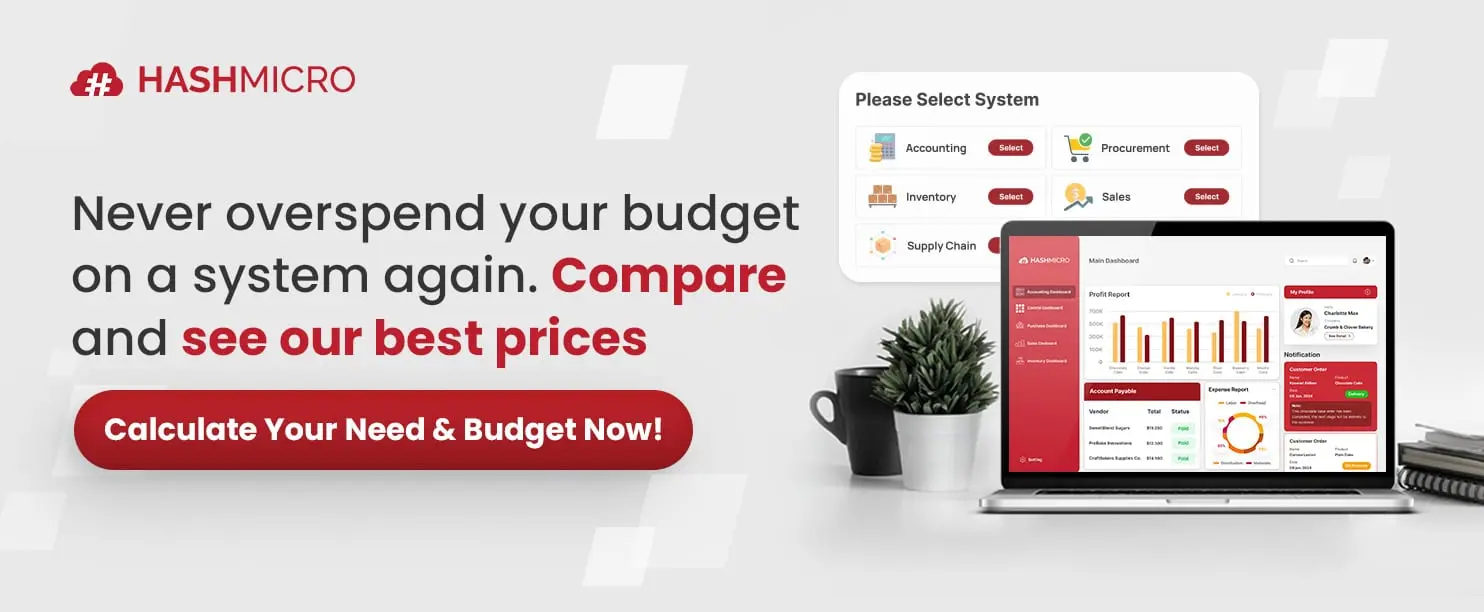Many growing businesses invest in ERP systems to gain better control over operations, data, and decision-making. NetSuite ERP is one of the most well-known platforms out there. However, is it the right ERP for your needs?
From finance and inventory to CRM and HR, NetSuite offers a full suite of enterprise tools in one system. But for some companies, cost, complexity, and flexibility become real concerns, especially as teams grow or shift.
In this article, we’ll explore what NetSuite ERP offers, where it shines, and where it may fall short. We’ll also introduce a flexible alternative for businesses in Malaysia that want powerful ERP features without the usual overhead and offer a free demo to help you evaluate it with no commitment.
Key Takeaways
|
What is Oracle NetSuite ERP?
NetSuite ERP is a cloud-based solution that integrates key business operations such as ERP, CRM, inventory, accounting, and e-commerce into one unified platform. It’s often chosen by companies that want to manage these functions seamlessly within a single system while staying connected to other tools and workflows.
By consolidating business data in one place, NetSuite ERP creates a strong foundation for AI-driven capabilities. Its built-in AI features automate routine tasks, deliver smart recommendations, and surface valuable insights to support better decision-making.
Features of Oracle NetSuite ERP
NetSuite Cloud ERP is flexible enough to support many types of businesses because it offers a wide range of modules. As a result, it also offers a competitive advantage to businesses. Below are the core modules of NetSuite:
1. Financial Management
This module takes care of core accounting tasks like updating the general ledger, managing payables and receivables, and sending invoices. It helps speed up the month-end close and makes it easier to create reports for regulatory and compliance needs.
NetSuite Cloud ERP also handles complex revenue recognition and can combine financial reports from different subsidiaries, with real-time currency conversion.
2. Inventory Management
This module gives businesses a real-time view of inventory across all locations and sales channels. It automatically updates stock levels, sets smart reorder points using sales data, and alerts purchasing teams when to restock.
It also supports cycle counting, helping businesses avoid both overstock and stockouts.
3. Procurement
The procurement module improves the entire buying process, from selecting vendors to making payments.
Companies can manage preferred suppliers, gather quotes, create automated purchase orders, and monitor vendor performance and spending in detail. Vendor self-service features also help speed up the payment process.
4. Manufacturing
For businesses that produce or assemble goods, NetSuite offers tools for planning, scheduling, and managing production. It ensures the right parts are available at the right time and allows managers to oversee work orders.
5. Customer Relationship Management (CRM)
NetSuite Cloud ERP also offers a complete, 360-degree view of each customer. It includes sales force automation tools to manage leads, quotes, and sales activities, helping speed up the entire lead-to-cash cycle. Sales forecasting features use historical data to project future revenue more accurately.
6. Human Resources
NetSuite’s HR solution, SuitePeople, integrates HR data across the entire ERP system. It keeps track of employee records, supports onboarding for new hires, and logs changes in roles, salaries, or promotions.
Employees get self-service options to request leave, view the company directory, check organizational charts, and recognize peers. Managers can run and track performance reviews easily.
How Oracle NetSuite ERP Works
Oracle NetSuite ERP brings together essential business functions into a unified system that helps companies improve efficiency and visibility. Here’s how the system operates behind the scenes to support day-to-day operations:
Centralized business data
Oracle NetSuite ERP stores all your company’s information in one connected database. This shared access ensures that departments are always working with the same accurate, up-to-date data.
Automation across departments
From finance to operations and sales, Oracle NetSuite ERP automates repetitive tasks and workflows, reducing manual effort and improving consistency across business processes.
Unified real-time reporting
With Oracle NetSuite ERP, users can view financials, customer activity, and inventory levels all in one place. This live data access helps teams act quickly and make better-informed decisions.
Flexible customization options
The platform allows users to personalize dashboards, reports, and workflows to match specific business needs. These customizations remain intact, even after the system is updated.
Pros and Cons of Oracle NetSuite ERP
NetSuite ERP is widely used by businesses across the globe. However, before deciding if it suits your organization, it’s important to weigh both its strengths and potential limitations. Below is a breakdown of its key advantages and considerations.
Pros of NetSuite ERP
Let’s begin with the main benefits businesses often experience when using NetSuite ERP:
- Unified system for core operations: Combines finance, CRM, inventory, e-commerce, and more into a single platform, reducing the need for disconnected tools.
- Real-time insights and reporting: Offers live dashboards and reporting for faster, data-driven decisions.
- Remote access with cloud deployment: Accessible from anywhere, ideal for teams spread across locations or working remotely.
- Built to scale: Supports business growth by accommodating more users, new subsidiaries, and international expansion without needing major changes.
Potential Drawbacks of Oracle NetSuite ERP
Like any platform, NetSuite ERP comes with trade-offs. Below are some common concerns raised by users and analysts, including insights from TMC:
- Rising costs over time: While initial pricing may seem attractive, renewal rates can increase significantly, especially with added users or modules.
- Limited downgrade flexibility: It’s easy to scale up, but reducing licenses typically has to wait until contract renewal, which may span several years.
- Ongoing support and training gaps: Continuous training beyond onboarding is limited, often pushing businesses to rely on third-party support.
- Complexity for smaller teams: The system’s wide feature set may feel overwhelming for small businesses or teams with simpler needs.
- Sales and partner channel issues: Some users report challenges with NetSuite’s internal sales or partner processes, including miscommunication or overpromising during sales negotiations.
These drawbacks are frequently mentioned in customer reviews, particularly from users who faced unexpected pricing changes or struggled to get long-term support.
For companies seeking the best ERP software in Malaysia, it’s worth considering alternatives that are more adaptable and cost-effective.
HashMicro as the Best Cloud ERP Alternative in Malaysia
While NetSuite ERP is a powerful system, many businesses find its high cost, rigid contracts, and complexity challenging, especially for companies that need flexibility.
If you’re exploring ERP options that better match your business’s evolving needs, HashMicro ERP offers a practical, cost-efficient alternative. Built for Southeast Asian businesses, including those in Malaysia, HashMicro delivers powerful automation without the overhead.
Here’s how HashMicro addresses some of the common pain points businesses face with other ERP platforms:
1. Flexible Licensing with No Surprise Costs
Unlike NetSuite, where scaling down licenses is difficult and renewals can be expensive, HashMicro ERP offers transparent pricing and flexible packages. You can easily add or remove modules and users as your business changes without waiting years for a renewal cycle.
You can even check out its pricing plans here!

2. All-in-One System That’s Easy to Use
NetSuite’s depth often comes with a steep learning curve. HashMicro ERP, on the other hand, brings together accounting, inventory, HR, CRM, and more into one clean interface designed for the users, so your team can focus on operations, not on learning how to use the system.
3. Local Support That Actually Supports
Many NetSuite users report having to rely on third-party partners for training or post-implementation help. HashMicro provides direct local support and hands-on onboarding, so your team gets guidance from people who understand your business environment, no guesswork, no hidden costs.
4. Modular, Scalable, and Built for Your Industry
While NetSuite can feel overwhelming for smaller teams, HashMicro ERP is modular by design. Whether you’re a retail chain, a manufacturing company, or a trading business, you only pay for the features you need. Then, you can add more as you grow.
5. Real-Time Reports That Don’t Require a Data Team
HashMicro ERP offers real-time dashboards and automated reports across financials, sales, and inventory. Unlike other platforms where custom reporting can get complicated or more paid add-ons, HashMicro’s is designed to give decision-makers clear insights.
Conclusion
NetSuite ERP offers powerful features for enterprise management, but its pricing and complexity may limit accessibility. While it integrates operations well, the system can be rigid and overwhelming for many growing businesses.
If you’re after a smarter ERP that works with your team, HashMicro makes a real difference fast. It’s flexible, user-friendly, and built with the needs of Southeast Asian businesses like yours in mind.
With HashMicro, you get clarity, control, and scalability without the steep costs or learning curve. Try the free demo today and see how easy ERP can actually be!

FAQ on Oracle NetSuite ERP Review
-
Is NetSuite a cloud-based SaaS solution?
Yes, NetSuite is delivered as a cloud-based Software‑as‑a‑Service (SaaS), meaning it’s fully hosted online, auto‑updated, and accessible from anywhere—eliminating the need for on‑premise servers.
-
Who owns NetSuite ERP?
Oracle Corporation acquired NetSuite in November 2016. It now operates as Oracle NetSuite under Oracle’s suite of cloud applications.
-
Do you need an implementation partner for NetSuite?
Yes, many companies choose to work with experienced NetSuite implementation partners. These experts help with setup, customizations, training, and ensuring smooth deployment. A homegrown team may struggle without this support.


























